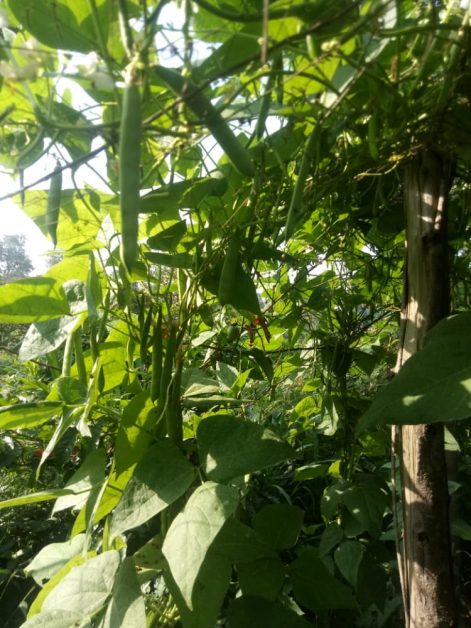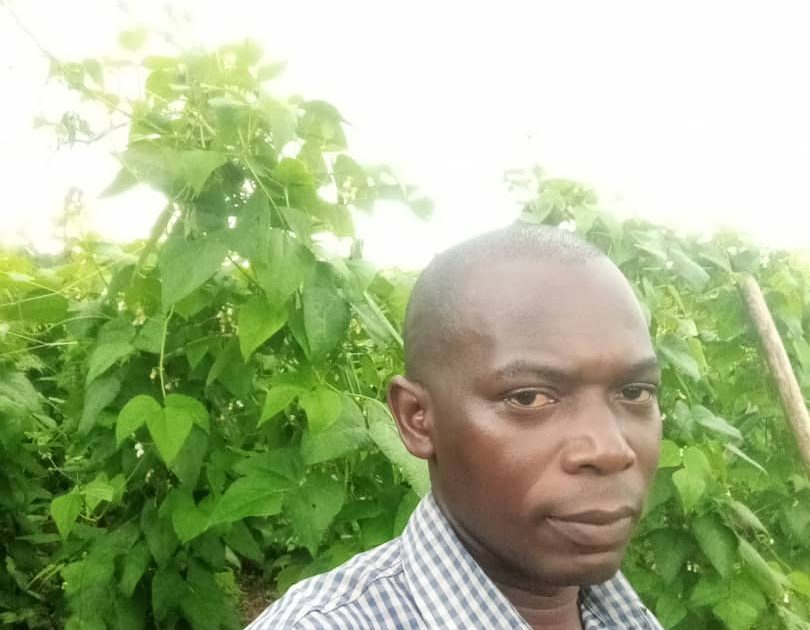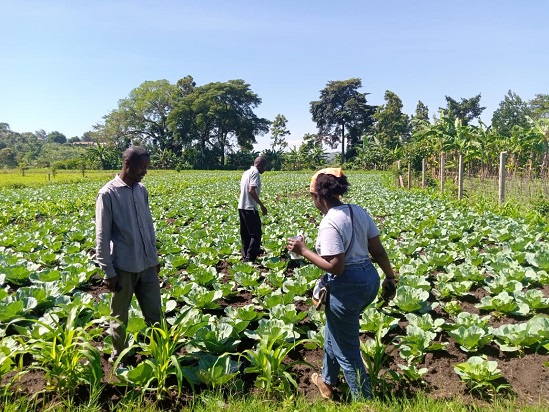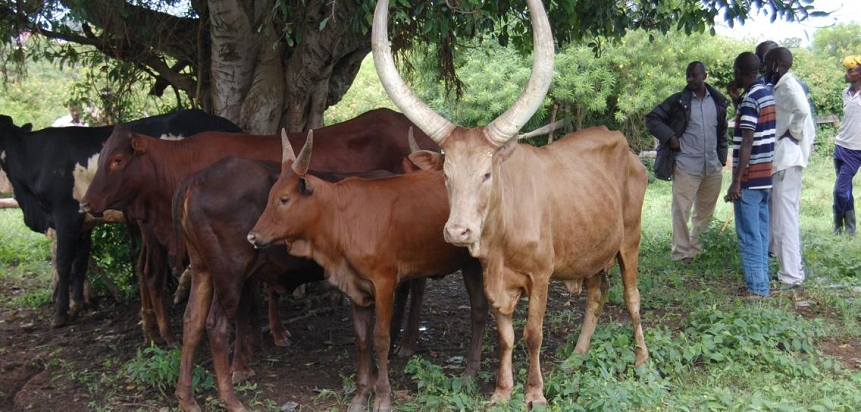Kigoye is earning big from growing Masavu beans
There are various types of beans on Ugandan market. Beans are an important staple sauce in many Ugandan families, implying that they always have ready market. White speckled beans commonly known as ‘Masavu’/Nakadama in Central region is one type of beans that can make you quick money.
Both fresh and dry Masavu beans are on high demand.
Beans are important source of protein and micro-nutrients mostly B vitamins, iron, calcium and zinc.
The crop offers a good source of balanced nutrition for rural and urban households especially the poor who can barely afford animal protein.
In this article, we explain how a farmer can earn as high as 50 bags of fresh masavu beans from an acre.This means that at average price of Shs180,000 per bag, a farmer can earn a gross profit of Shs9m.
Godfrey Kigoye, an agronomist and farmer dealing in masavu beans says the climbing beans are a real deal for people with small pieces of land.
He says a farmer needs poles on which they can climb as well as fish nets (used up/no longer in use) or nylon threads used in passion fruit farming to set up a structure/kitandaro on which beans will climb . A roll of nylon threads, Kigoye says costs Shs6000 and one requires 20 of them to cover an acre.
“After setting up the trellis (kitandaro), then you can plant your beans because they grow well as they climb upwards. An acre will need between 20-25kgs of seeds because spacing is 1.5ft from one hole to another and 2ft between rows. We put about five beans in a hole,” Kigoye says, adding: “They should be planted in straight lines. The 2ft row allows you to move around for spraying, weeding and inspection purposes. You’ll need a litre of any pesticide to spray an acre,” Kigoye says.
He adds: “You can also add ‘Harvester’ which acts as a fungicide and pesticide. It’s a two-in one.”
He adds that before planting, one needs manure. He recommends poultry litre and an acre requires 8 bags, with each bag costing an average of Shs15,000 depending on location. He says you apply a handful of poultry litre in each hole.
Kigoye says without manure, beans can’t yield much.

Asked about the viability of five beans in a hole, Kigoye said they won’t have any competition because they grow climbing upwards.
Kigoye says he prefers selling fresh beans.
“In an acre, I can harvest between 50-80 bags of fresh beans. Due to COVID-19, prices have been interrupted but during normal times, a bag averages Shs180,000,” Kigoye says, adding that currently a bag goes for between Shs90,000 to Shs100,000 as buyers cite COVID-19 for low prices on grounds that people aren’t working in cities and towns. At Shs90,000 per bag, a farmer can earn a gross profit of Shs4.5m from 50 bags and at Shs180,000, a farmer can earn Shs9m.
He says one starts harvesting Masavu beans at three to four months and the harvesting continues for six months.
Challenges
He says masavu beans are frequently attacked by pests like American ball-worm, so a farmer must regularly inspect the field and spray accordingly.
Unpredictable weather is yet another challenge, Kigoye says.
“Beans need water and requires timely planting. For this season, those who will benefit from masavu beans have already planted. They are now watering them. By the time the rains come in, beans will have taken major steps. The beans need rains especially when they are flowering, so November rains will be important,” he says.
Market
Kigoye says Masavu beans are the dominant fresh beans in most towns of Uganda. He therefore advises farmers to sell masavu beans as fresh.
“For those with small plots of land, let them try masavu beans. Last season, I got 10 bags from 10ft*100ft plot. I sold each bag at Shs90,000,” he says, adding that when dried, masavu beans quickly go bad compared to other varieties.
For inquiries, tips and advertising, reach out to us via: 0775170346/0703828741/staddewo@gmail.com/@BusinessFocusug/@TaddewoS







Masavu beans cultivation is a crop suitable for an average farmer with limited land space.
Mr. Kigoye Godfrey has not told us where it grow best since Uganda is covered with different types of soils and weather conditions.
Thank you, the publisher.
Greetings!!!
Hope this finds you well..
Have some market for Masavu beans, can I reach Kigoye for market!!
Can’t I plant these beans in rows and then bring sticks in the middle . I’ve seen it working